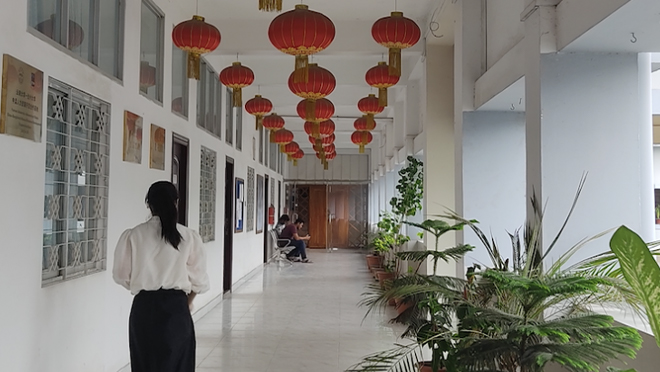Confucius Institute: A slice of China in Dhaka with dragon dance lessons
Confucius Institute: A slice of China in Dhaka with dragon dance lessons

আর্টিকেলটি বাংলায় পড়তে ক্লিক করুন
Yang Hui arrived in Dhaka for work in 2022. After three years, he considers the city home. Chinese restaurants, markets, and a small community provide a sense of familiarity, making Dhaka feel less foreign.
Initially, he found Dhaka’s noise, pollution, and congestion challenging, especially compared to Kunming. However, the welcoming and energetic local community, particularly the youth eager to learn Chinese, convinced him this was the right place for his work.
Yang Hui is the director of the Confucius Institute at Dhaka University, established in 2016 in partnership with Yunnan University, where he studied. With a doctorate in international relations with a focus on African studies, he has traveled widely in Africa. He notes similarities between Africa and South Asia – both of which were shaped by colonial rule that influenced their political and educational structures.
Teaching language and culture
The Confucius Institute is China’s answer to the British Council, Alliance Française, or Goethe-Institut. Since the first launch in Seoul in 2004, the network has grown to nearly 1,200 institutes and classrooms worldwide. In Bangladesh, besides Dhaka University, North South University hosts an institute, and Shanto-Mariam University hosts a classroom.
Teaching Chinese is its primary purpose, offering six levels of regular courses, as well as business, cultural, and everyday Chinese courses. Dhaka University’s institute employs 12 Chinese teachers and one Bangladeshi teacher. While Chinese instructors teach locals, Bangladeshi staff also help Chinese professionals and entrepreneurs learn the Bangla language.
Students engage with both Chinese culture and language. Classes cover a range of subjects, including martial arts, calligraphy, tea culture, paper cutting, painting, and character writing. Annual events such as Chinese New Year, the Lantern Festival, and the Dragon Boat Festival feature traditional performances and opportunities to wear Hanfu.
No barriers to entry
“There is no selection process and no age limit – anyone can enrol by paying the fee. We only advise on which level is suitable,” Hui said. Dhaka University students pay Tk 3,500 per course, while outsiders pay Tk 5,000. Each course lasts four months and ends with a final exam and certificate. Completing HSK levels 1–4 enables students to converse almost as fluently as native speakers.
Currently, about 600 students are enrolled; since its launch, around 7,000 have gained proficiency, according to Bangladeshi teacher Neelu Akter.
Pathways and opportunities
Why the interest? Hui explained: “Many want to study in China. It is becoming a world power, and the Belt and Road Initiative connects 150 countries, creating countless job opportunities. Bangladesh–China relations also encourage people to learn the language.”
One such student is Sadia Khan, who has been recommended for a scholarship at Sichuan University. Initially unable to enroll in her preferred subject, she opted for the Chinese language at Dhaka University. By her fourth year, she had already completed HSK level 4.
“The language is very interesting,” she said. “Characters are like pictographs, and the tones are like rhythm in poetry. Once you master them, it is not so difficult.”
Sadia has worked as an interpreter at international events, including a trade summit at the Intercontinental Hotel and programs at the ICCB. She was also invited to interpret for a visiting Chinese medical team but was unable to participate due to family commitments, which she regrets.
Chinese teachers in Bangladesh
Her teacher, Zhao Jiang Yan, from Yunnan, has taught in Uganda and Thailand before coming to Bangladesh in 2022. He is impressed by the dedication and energy of Bangladeshi students. “If I had to choose between Switzerland, the US, and Bangladesh, I would choose Bangladesh – because here I get to teach more, and I love teaching,” Zhao said.
Zhao has explored Cox’s Bazar and Old Dhaka, and developed a taste for Sultan’s Dine’s biryani. He noted with delight that just as Chinese goods, food, and cosmetics are widely available in Bangladesh, Bangladeshi products, such as mangoes, saris, and handicrafts, are also found in China.
A mini China on campus
The Confucius Institute, on the sixth floor of Dhaka University’s Arts Building, features lanterns, dragons, lions, cat figurines, and calligraphy, creating a distinctive Chinese atmosphere on campus.


